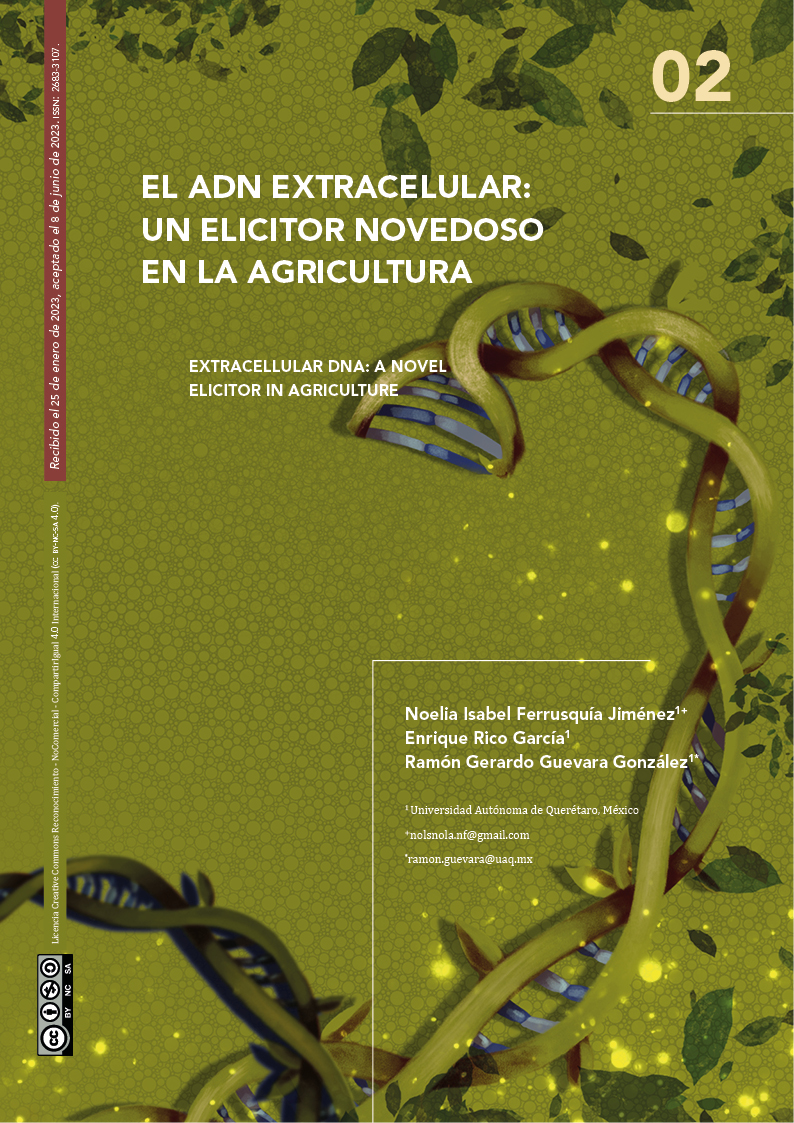Resumen
Las plantas, al ser organismos sésiles, recurren al reconocimiento de moléculas llamadas elicitores para saber como actuar ante diferentes situaciones de estrés. Estos elicitores son un grupo diverso de moléculas de origen biogénico que incluye a proteínas, polisacáridos y lipopolisacáridos, entre otros. Estas moléculas son capaces de modificar respuestas fisiológicas, metabólicas y genéticas para conseguir una respuesta apropiada ante eventos que provoquen un desequilibrio celular como daños físicos, infecciones, u otras alteraciones. El ADN extracelular (eADN), ha sido reconocido como un elicitor vegetal relevante en los últimos años debido al efecto provocado cuando es aplicado en diferentes dosis, por lo que su estudio se ha vuelto un tema prioritario. Por tal motivo, este trabajo incluye un panorama general de los diferentes tipos de elicitores usados en la industria agrícola, haciendo énfasis en los estudios que incluyen al eADN como elicitor de plantas. Además, se incluye una perspectiva del uso del eADN como un posible elicitor de microorganismos benéficos, lo que genera nuevas áreas de investigación que beneficiarán al desarrollo de esta tecnología.

Esta obra está bajo una licencia internacional Creative Commons Atribución-NoComercial-CompartirIgual 4.0.
Derechos de autor 2024 Perspectivas de la Ciencia y la Tecnología

